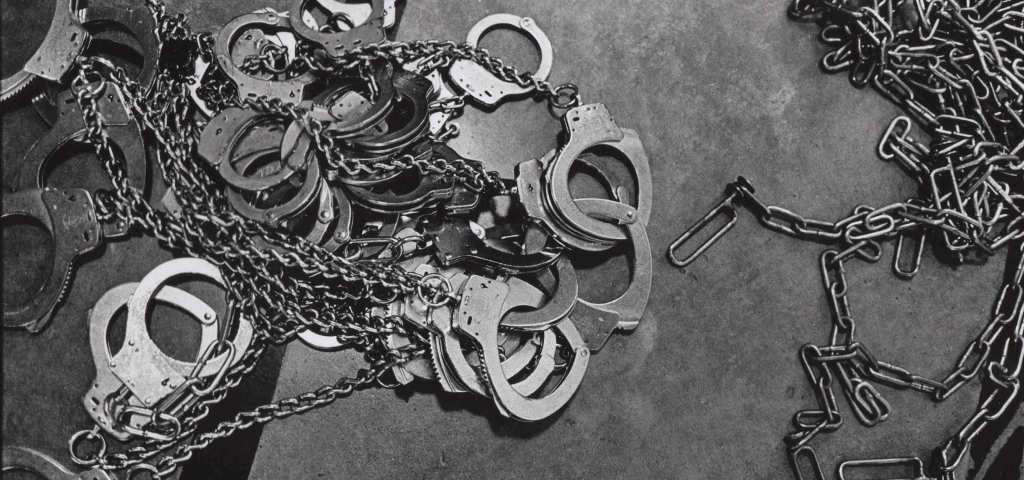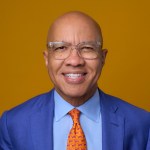 Andrew Lichtenstein/Corbis
Andrew Lichtenstein/CorbisAs my colleagues and I survey America’s landscape of intractable, intolerable affronts to social justice, none is more pronounced than the United States’ shameful record on mass incarceration.
Across our nation, millions of low-income people have been sentenced not only to prison time, but to futures that leave them marginalized, and prevented from contributing to our democracy and society. All the while, incarceration rates remain intolerably high, even as crime rates steadily fall. Our government’s steady construction of more prisons is a statement of surrender and an indictment of our judicial system.
Legal scholar Michelle Alexander powerfully makes the case in her authoritative book, The New Jim Crow. As she demonstrates, America’s unequal drug laws, mandatory-minimum prison sentences, and wholesale incarceration of primarily African American and Latino men—and increasingly women—for nonviolent crimes have set in motion a vicious cycle that perpetuates historic patterns of discrimination and marginalization. These Americans have their basic rights revoked, trapping families in deeper intergenerational poverty. As a result, she notes, more African Americans are part of the criminal justice system today than were enslaved on the eve of the Civil War.
Our criminal justice system has become punitive rather than rehabilitative. It destroys individuals, families, and communities. It strips people of their dignity and their hope for opportunity.
And yet, today, on the issue of criminal justice reform, I believe we are on the verge of a major breakthrough.
This potential breakthrough is built on a wide range of actors and organizations across the country, all of whom have reached the same fundamental conclusion: that America’s pattern of mass incarceration is bad for the country, terrible for communities, and devastating for individuals. At this point, no one denies that the system needs major repair.
We have every reason to feel good about this emerging consensus. The Ford Foundation has been working on this and related issues for years, supporting organizations that have courageously championed reform, making the case and building awareness. Those organizations have been a huge factor in creating this new moment. Across the political and social spectrum, people are signing on to efforts to address the problem, creating an opportunity for organizations that are typically on opposite sides to come together in common cause.
Given our history of work in this arena, it is no surprise that we have been asked to join one of the emerging coalitions around reform. What is perhaps surprising is that the coalition in question is made up of players that some might expect would never partner together—and supported by funders whose work is very often at cross-purposes. It is called the Coalition for Public Safety, and it is made up of a diverse constellation of organizations that includes Americans for Tax Reform, FreedomWorks, Faith and Freedom Coalition, and Right on Crime, as well as the ACLU, Center for American Progress, and the Leadership Conference for Civil and Human Rights. Funders of the coalition include Laura and John Arnold, the John D. and Catherine T. MacArthur Foundation, and Koch Industries. And the Ford Foundation.
We considered this partnership carefully and from many angles. We asked ourselves how, and whether, this effort would add value to a space with many fine coalitions and partnerships already in place. We asked whether the dynamics of such a diverse group would lend well to effective work. And we considered issues of principle, perception, and public interpretation.
We and our partners agree there is an urgent need to make the system more fair, just, and effective. Thus, in the end, I felt the risks were worth taking, that the opportunity to make meaningful and sustainable change was compelling, and that the degree of surprise inherent in this particular constellation of partners was right for the moment and for the cause.
Too often, we despair over the familiar patterns of American politics. From city halls to state capitols to Congress, our elected officials retreat and retrench into ideological corners. Reaching across aisles has become a sign of weakness, not accomplishment; cooperation has become an unforgivable sin.
But it does not need to be this way. Just because we disagree on some things—or even most things—does not mean we can’t work together where we do agree. Our engagement with the Coalition for Public Safety is an affirmation of this important ideal, which has ensured—throughout American history—that we do not allow the perfect to undermine progress. We will be thoughtful, vigilant partners, championing the values and ideals we stand for. But we will do so while working to model the kind of collaboration our democracy has long thrived upon.
Ultimately, the Ford Foundation is dedicated to solving problems—the largest, thorniest, most complicated problems of the day. To do so, we consistently seek out creative, pragmatic solutions and partnerships that give us the best chance to make a meaningful difference in the lives of people who are left behind in our society. This new partnership, designed to help shut down the pipeline from schoolhouse to jailhouse, is only the most recent example—and it will not be the last.
